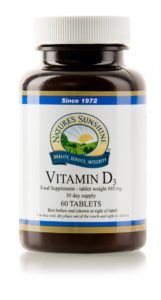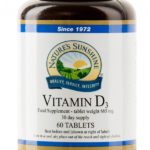
Nitin Madhav/Wikimedia Commons
Peter McCaffery, University of Aberdeen
UKIP would like to ban the burqa and niqab being worn in public because it says they “are barriers to integration”. However, UKIP is also concerned about the health of women who wear these garments as – according to its manifesto – they prevent the “intake of essential vitamin D from sunlight”. As part of The Conversation’s Fact Check series, we asked two academics to check the science behind the claim.
The niqab and burqa, worn for cultural or religious reasons, cover the wearer’s body and face. They are made of opaque material that greatly reduces the amount of sunlight reaching the skin and hence the amount of vitamin D that the body can generate. However, this is not a problem as vitamin D needs can be satisfied by diet and supplementation alone.
There are a number of peculiar aspects of vitamin D that are necessary to understand so that deficiency is avoided.
Vitamin D, the “sunshine vitamin”, is unusual among vitamins. All other vitamins can only be obtained from diet, but vitamin D can also be made in the body. Synthesis by the body is dependent on a step requiring sunlight, specifically ultraviolet (UV) light reaching the skin. Without sunlight on the skin, little vitamin D will be made by the body.
For many reasons, people may not get enough sunlight. This can be because of the clothing they wear, because they have darker skin, because their jobs keep them inside, because they live at latitudes where the sun remains low in the sky, or because they purposefully keep out of the sun because of the known dangers of excessive sun exposure, namely skin cancer. Obesity also decreases the ability of the body to use vitamin D. Clearly, there are many reasons why vitamin D deficiency may occur.
But restricting sunlight does not cause a problem if a person gets enough vitamin D from their diet or supplementation (vitamin D pills). There are high levels of vitamin D in foods such as oily fish, and smaller amounts in liver and egg. In some countries, foods, such as breakfast cereals and milk, are fortified with vitamin D . If a person doesn’t get much sunlight, they will need to consume enough foods high in vitamin D or take vitamin D supplements.

R_Szatkowski/Shutterstock
Without vitamin D, serious health problems are inevitable. Vitamin D is essential to control the correct levels of calcium in the body, necessary for good bone health. Deficiency of this vitamin is the cause of bone weakening and deformities, such as rickets in children and osteomalacia in adults.
Rickets are a problem in many parts of the world, including places with an abundance of sun but where people are not exposed to enough sunlight. Vitamin D deficiency occurs in countries where wearing of the niqab and burqa is prevalent, such as Saudi Arabia, but also in countries like Australia where sun exposure is reduced for other reasons, such as effective public health campaigns about skin cancer.
Verdict
The niqab and burqa do prevent the intake of vitamin D from sunlight. But problems only occur when the person is unaware of the potential damage due to lack of sunlight and does not redress this by increasing their vitamin D intake through diet or supplements.
Review
Zaki Hassan-Smith, honorary senior research fellow, University of Birmingham
I agree with the author’s analysis. Setting the claim in the context of scientific evidence here is important for a meaningful examination of the manifesto claim.
Covering the skin is one of a number of risk factors for vitamin D deficiency, and, indeed, in the UK in winter there is inadequate sunlight for vitamin D production. In summer the level of exposure varies according to a number of factors from skin type, latitude, altitude to time of day. Most of the UK population is at risk of low vitamin D for some of the year. If we extrapolate the findings of a recent European study, over 30m people in the UK are estimated to have vitamin D deficiency or insufficiency. And our recent study of 116 UK-based healthy volunteers found that only 14% had normal serum vitamin D concentrations. So, the premise of the UKIP statement that wearing a niqab or burqa is an important risk factor for vitamin D deficiency is questionable in settings such as the UK, as, for most of the year, no one else is making any vitamin D via their skin.
Recent guidance from NICE on the prevention of vitamin D deficiency recommends that those “at risk” should take daily vitamin D supplements. Evidence-based public health measures on vitamin D are welcome, and universal supplementation strategies in at risk groups can be effective. Nobody needs to suffer from vitamin D deficiency, regardless of what they wear.
The Conversation is checking claims made by public figures and in the public domain. Statements are checked by an academic with expertise in the area. A second academic expert then reviews an anonymous copy of the article. Please get in touch if you spot a claim you would like us to check by emailing us at uk-factcheck@theconversation.com. Please include the statement you would like us to check, the date it was made, and a link if possible.
Peter McCaffery, Professor of Biochemistry, University of Aberdeen
This article was originally published on The Conversation. Read the original article.

- Vitamin D is an important vitamin for maintaining the good health of bones and teeth, and is required to help our bodies absorb calcium. Although we can get some from food, such as oily fish, eggs and meat, it difficult to get enough vitamin D from food alone.
- Vitamin D has many roles – it helps in the development and maintenance of bones, muscle, and teeth, and the absorption and use of calcium and phosphorus, it also contributes to the normal function of the immune system and inflammation response.


